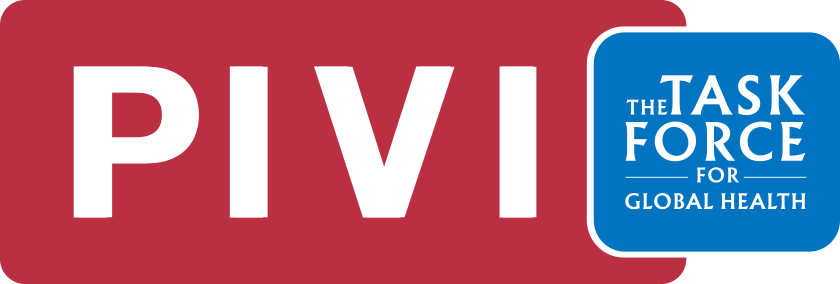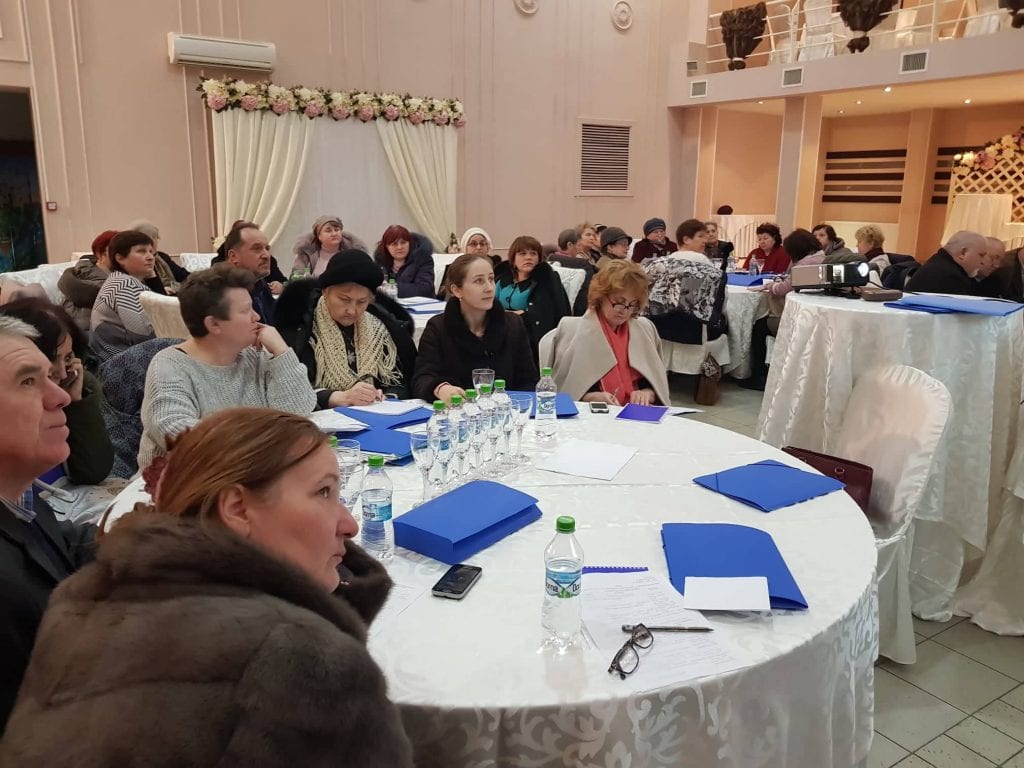Moldova – Impact of PIVI and Healthcare Worker Workshops
There are approximately 13,000 physicians and 25,000 nurses in the Republic of Moldova. While most work for the government, many work in private institutions. Regardless of where they work – all healthcare workers are included in the risk group that should be vaccinated to protect from influenza. These health professionals regularly attend various workshops to learn and improve various skills at the local, regional and national levels.
As is the case with many countries, there is currently some anti-vaccination information being shared in the Republic of Moldova. Because of this, in the summer of 2017, the National Agency for Public Health (NAPH) conducted a Knowledge Attitudes and Practices (KAP) study of healthcare workers with a focus on seasonal influenza vaccination. The sample size of the research was 554 healthcare workers from 10 administrative territories. As a result of the study, the NAPH identified barriers and gaps in this area.
In 2019, based on the KAP data and request from the healthcare workers who participated in the study, NAPH conducted workshops in 10 administrative territories between February and April. 456 healthcare workers participated in these workshops, with strong participation from family doctors and epidemiologists. There are approximately 1,700 family doctors and 160 epidemiologists in the Republic of Moldova.
The main goal of the workshops was to improve the healthcare workers’ knowledge in the field of epidemiological surveillance, prophylaxis and promotion of seasonal influenza vaccination.
Pre- and post-workshop questionnaires have shown that the workshops were very effective and positively received. Participants were glad to get electronic versions of the presentations on flash-drives. They plan to share these materials with colleagues in institutions, as well as in their day to day professional practices. They can also be used to produce communication pieces to educate the communities through different flyers for patients (e.g. Myths and Truths about Influenza and Influenza Vaccine).
Family doctors are the first contact and support for patients as they enter into the medical system. Because of this, their understanding of the importance of influenza prevention and treatment is very important. They help patients understand the value of vaccination and can educate them, and advocate for its use.
In the Republic of Moldova, a healthcare worker could have approximately 1,200 -1,600 people within his or her sector. Understanding and sharing the value of influenza vaccination with all of these people has a very large and positive impact on the health of the country. Just think, if each of the 456 healthcare workers that participated in workshops shared what he or she learned with even half of his or her patients, the impact would be enormous. Hundreds of thousands of people would know more about and be better protected from influenza – and consequently we all benefit.
Nicolae Furtuna,
Interim Director of NAPH
Seasonal and Pandemic Influenza Alliance
In March 2019, key international experts came together to consider how the global community might best address strengthening influenza epidemic and pandemic vaccine preparedness. The meeting was hosted at the Wellcome Trust, with support from Seqirus, the US Centers for Disease Control and Prevention, and The Task Force for Global Health. Dr. Bill Foege, founder of The Task Force for Global Health, shared his welcome and call to action via video which can be seen here.
The two-day Shaping Meeting to explore the value of a coordinated work plan for epidemic and pandemic influenza vaccine preparedness was attended by a broad range of public and private stakeholders that reviewed the current landscape of global activities and initiatives underway to strengthen seasonal and pandemic influenza control and preparedness, and identified critical obstacles and potential solutions to ensuring progress in global vaccine preparedness.
The experts also discussed the potential value in creating a coalition of stakeholders—government agencies, academic researchers, private industry, NGOs — to carry out an actionable work plan that will involve advancing global pandemic preparedness through the development of seasonal influenza vaccine programs.
PIVI Awarded the CDC / ATSDR Honor Award in Excellence in Program Delivery (International)
In April, PIVI was awarded the CDC / ATSDR Honor Award for Excellence in International Program Delivery. The Awards (presented by the CDC Foundation) highlight notable and significant achievements over the past calendar year.
Encompassing categories across scientific, program, management and operations sectors, the Awards, which began in 1952, seek to honor employees for improving agency performance and helping ensure CDC’s efforts are not only effective, but also as far-reaching as possible.
PIVI’s submission shared that, “Limited resources, regulatory challenges, and wide-ranging competing public health priorities undermine many countries’ successful uptake of influenza vaccines. PIVI’s unique approach leverages expertise from CDC on influenza epidemiology and global immunization practices, as well as global health experience and resources from The Task Force for Global Health and WHO headquarters, regional and country offices. Through this coalition, PIVI helps build routine annual influenza vaccination programs in low- and middle- income countries that are sustained by country resources.”
PIVI was also recognized in 2014 with the Innovation Award.
Published PIVI Papers
J.S Bresee, K.E. Lafond, M. McCarron et al., The partnership for influenza vaccine introduction (PIVI): Supporting influenza vaccine program development in low and middle-income countries through public-private partnerships’, Vaccine, https://doi.org/10.1016/j.vaccine.2019.06.049
A.Xeuatvongsa, J.A. Mott, V. Khanthamaly et al., Progress toward sustainable influenza vaccination in the Lao Peoples’ Democratic Republic, 2012-2018, Vaccine, https://doi.org/10.1016/j.vaccine.2019.04.047
A. Ba-Nguz, A. Shah, J. Bresee et al., Supporting national immunization technical advisory groups (NITAGs) in resource-constrained settings. New strategies and lessons learned from the Task Force for Global Health’s Partnership for influenza vaccine introduction, Vaccine, https://doi.org/10.1016/j.vaccine.2019.05.046
Upcoming Events
CDC and PIVI Partners 3rd Annual Meeting on Influenza Vaccination Program Development will be held on September 17-19 in Istanbul, Turkey.

